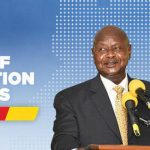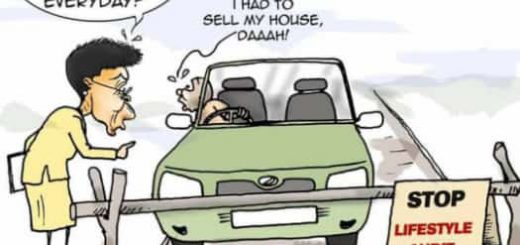Automatic impeachment of the President of Uganda and other public servants for failure to respect a court order to strengthen rule of law in Uganda

The Constitution of Uganda initially had checks and balances to prevent dictatorship. Regardless of those checks and balances, the Constitution provides the executive with extensive powers including implementation of laws, appointment of judges, prerogative of mercy, Commander of the armed forces and the power to budget and set priorities.
Though the checks on executive power were weak from the start, the framers of the Constitution probably thought that the legislature and the courts would check the powers of the executive. They didn’t anticipate that members of parliament would be stooges kneeling at the feet of the executive. The framers probably did not also anticipate a judiciary manned by cadres beholden to the president. Experience has shown that even developed democracies like the United States can experience shocks to their democracy when they have a dictatorial president and an enabling legislature.
Soon after the checks and balances became an obstacle to the rule of the government in power, they were swiftly removed. The first check on executive power to go was the term limits. Term limits ensure continuous rotation of power between different individuals. They strengthen the judiciary by ensuring that it is manned by appointees of different presidents. Term limits also strengthen the legislature by ensuring that the legislators are not beholden to one man. The second check and balance to be eliminated was the age limit, which served the same purpose as term limits.
In many states, the judiciary is the guardian of the rule of law. It is normally able to exercise a measure of Independence that the legislature is not able to especially where the legislature is controlled by the party controlling the presidency. Case in point is the American judiciary after Trump pushed baseless claims of voter fraud and tried to frustrate a peaceful transfer of power. While the members of his party in the legislature enabled his baseless claims and many voted against certifying the election results even after they were certified by the states, the judiciary including his appointees ruled against his baseless law suits. But what if the executive had ignored the rulings of court and decided to remain in power. Maybe the Public service and military would have refused to follow the orders of the illegitimate executive but such an outcome is unlikely in weak democracies like Uganda.
In weak democracies like Uganda, judges have to consider the likelihood that the executive might refuse to respect it’s decisions. Actually in Uganda, the executive has disobeyed various decisions of the judiciary especially orders to release members of the opposition. It is very likely that if the judiciary in Uganda, for example nullified a presidential election, the state would disobey the court decision. After all the executive has defied the judiciary without consequence.
To strengthen the judiciary, I propose a constitutional duty on the executive to respect the decisions of court and a Constitutional nullification of presidency of an president who fails to obey a decision of court. Any president who fails to respect a decision of court should automatically be impeached as a matter of law and be required to leave office. Parliament should only have the role of certifying that a court decision was made, the decision was communicated to the president and the executive failed to implement the court decision. The president should be allowed to implement the court decision within 15 days of a request for certification being made to parliament by any citizen. Parliament should make the certification within 30 days of the request being lodged by the applicant. The Constitution should clearly provide that parliament has no discretion to refuse to certify as long as there is a final court decision that the executive has failed to implement. This automatic impeachment should also apply to political appointees and other public servants who fail to implement a court decision.
Read More
- Ideal Amendments that should be included in the Magistrates Courts Amendment Bill 2026 of Uganda
- President Yoweri Kaguta Tibihaburwa Museveni is a minority President voted by only 7,946,772 (36.7%) out of 21,649,608 eligible Ugandan voters in the 2026 Presidential Elections
- Four years of IGG Beti Kamya drowned the Inspectorate of Government (IG) deeper into oblivion and irrelevancy but it Can be redeemed
- The Proposal to Make Magistrates Grade Ones Chief Magistrates is an efficient use of resources that will improve service delivery in Uganda
- If Magistrates Courts in Uganda are less competent and more prone to corruption does it mean that the poor deserve inferior justice to the rich.


